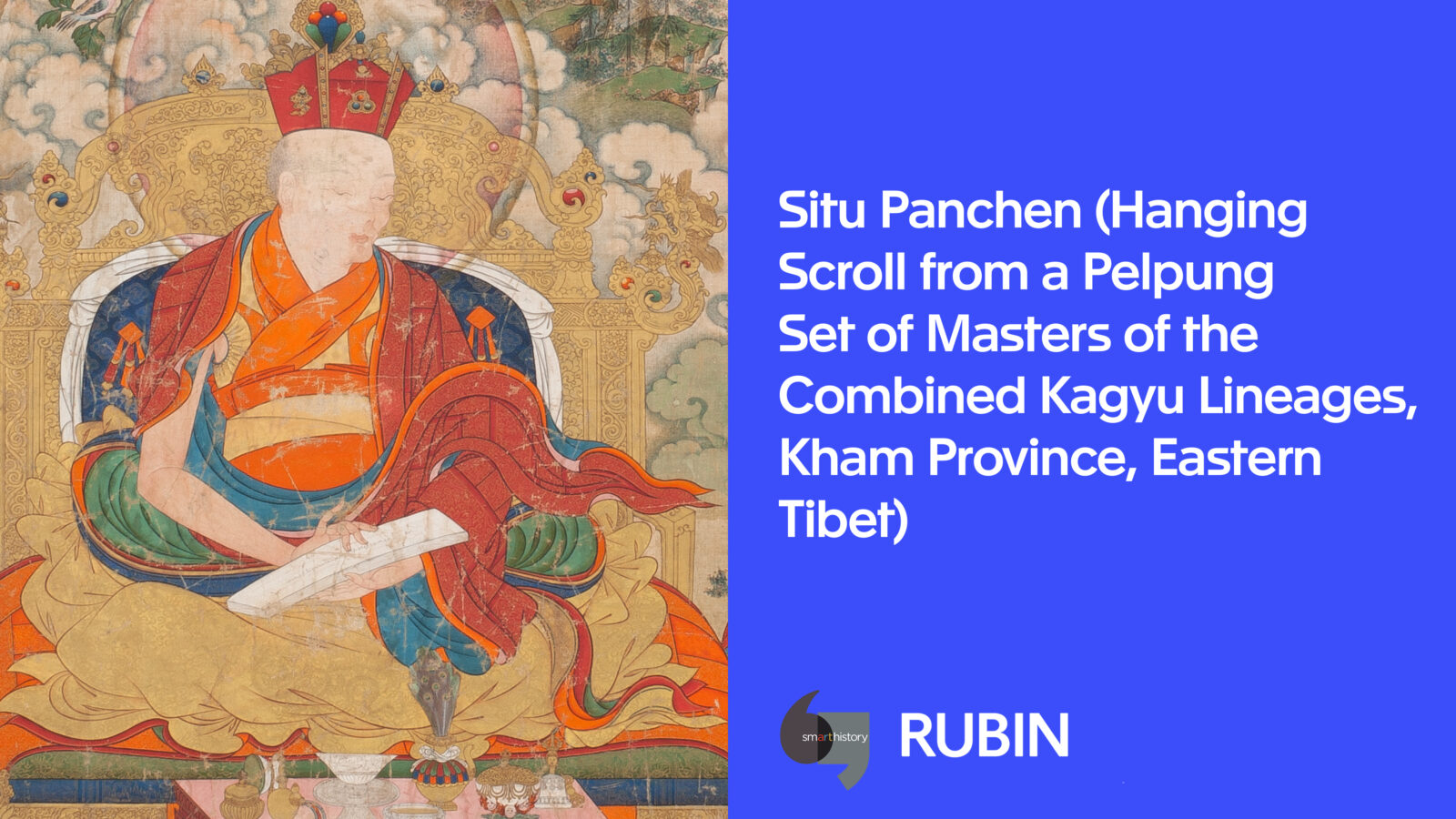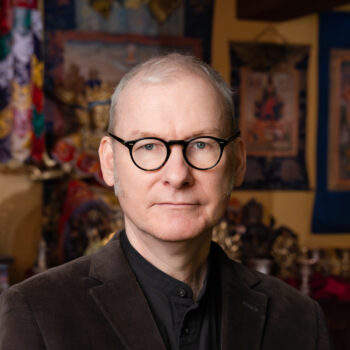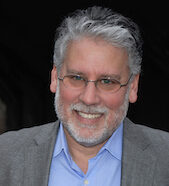


Rubin Museum senior curator Dr. Karl Debreczeny and Smarthistory’s Dr. Steven Zucker look at a painting of one of the great scholars and polymaths of the 18th century, Situ Panchen. As leader of the Karma Kagyu school of Buddhism at a time of its near eclipse, Situ Panchen revitalized the arts of southeastern Tibet and wrote widely about the arts.
The Rubin Museum has teamed up with Smarthistory to bring you an “up-close” look at select objects from the Rubin’s preeminent collection of Himalayan art. Featuring conversations with senior curators and close-looking at art, this video series is an accessible introduction to the art and material culture of the Tibetan, Himalayan, and Inner Asian regions. Learn about the living traditions and art-making practices of the Himalayas from the past to today.
Learn more about Situ Panchen on Project Himalayan Art, a resource from the Rubin for learning about Himalayan, Tibetan, and Inner Asian art and cultures:
This video was produced in partnership with Smarthistory.

Situ Panchen (1700-1774); From a Palpung set of Masters of the Combined Kagyu Lineages; Kham Region, Eastern Tibet; late 18th century, ca. 1760s; Pigments on cloth; Rubin Museum of Himalayan Art, Purchased from the Collection of Navin Kumar, New York; C2003.29.2
Leadership support for Project Himalayan Art is provided by the Henry Luce Foundation.
Project Himalayan Art has been made possible in part by a major grant from The National Endowment for the Humanities: Democracy demands wisdom.
This project was made possible in part by the Institute of Museum and Library Services MA-253379-OMS-23.
This project is supported in part by the National Endowment for the Arts.
Lead support is provided by the Ellen Bayard Weedon Foundation, Bob and Lois Baylis, Barbara Bowman, the E. Rhodes & Leona B. Carpenter Foundation, Noah P. Dorsky, Fred Eychaner, Christopher J. Fussner, the Estate of Lisina M. Hoch, Lilly Endowment, Matt and Ann Nimetz, The Randleigh Foundation Trust, Shelley and Donald Rubin, and Jesse Smith and Annice Kenan.
Major support is provided by Daphne Hoch Cunningham and John Cunningham, Stephen and Sharon Davies, the Edward & Elizabeth Gardner Foundation, Mimi Gardner Gates, Hongwei Li, Max Meehan, the Monimos Foundation, Edward O’Neill, The Prospect Hill Foundation, Sarah and Craig Richardson, Rossi & Rossi, Basha Frost Rubin and Scott Grinsell, the Andrew Sabin Family Foundation, Namita and Arun Saraf, Eric and Alexandra Schoenberg, Eileen Caulfield Schwab, UOVO, Sandy Song Yan, and the Zhiguan Museum of Art.
Special support is provided by:
Dr. Bibhakar Sunder Shakya, to honor the memory and legacy of Professor Dina Bangdel, art historian, curator, cultural activist, and educator from Nepal.
Samphe and Tenzin Lhalungpa, to honor the memory and works of L. P. Lhalungpa, Tibetan scholar, broadcaster, and educator.
Any views, findings, conclusions, or recommendations expressed in this initiative do not necessarily represent those of the National Endowment for the Humanities.
The views, findings, conclusions or recommendations expressed in this project do not necessarily represent those of the Institute of Museum and Library Services.

Karl Debreczeny is senior curator, collections and research, at the Rubin Museum of Himalayan Art. His research focuses on artistic, religious, and political exchanges between the Tibetan and Chinese traditions. His publications include The Black Hat Eccentric: Artistic Visions of the Tenth Karmapa (2012) and the coedited The Tenth Karmapa and Tibet’s Turbulent Seventeenth Century (2016). More →

Dr. Steven Zucker is co-founder and executive director of Smarthistory. Previously, Steven was dean of art and history at Khan Academy. He was chair of history of art and design at Pratt Institute where he strengthened enrollment and lead renewal of curriculum across the Institute. Previously, he was dean of the School of Graduate Studies at the Fashion Institute of Technology, SUNY and chair of art history. He has taught at The School of Visual Arts, Hunter College, and at The Museum of Modern Art. Dr. Zucker is a recipient of the SUNY Chancellor’s Award for Excellence in Teaching. He has co-authored, with Dr. Beth Harris, numerous articles on the future of education and the future of museums. Dr. Zucker received his Ph.D. from the Graduate Center of the City University of New York.
Get the latest news and stories from the Rubin, plus occasional information on how to support our work.